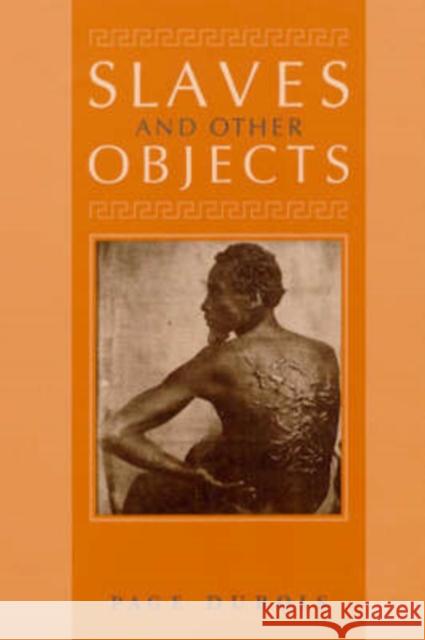Slaves and Other Objects » książka
Slaves and Other Objects
ISBN-13: 9780226167879 / Angielski / Twarda / 2003 / 312 str.
Page duBois, a classicist known for her daring and originality, turns in this new book to one of the most troubling subjects in the study of antiquity: the indispensability of slaves in ancient Greece. DuBois argues that every object and text in the world of ancient Greece bears the marks of slavery and the need to reiterate the distinction between slave and free. And yet the ubiquity of slaves in ancient societies has been overlooked by scholars who idealize antiquity, misconstrued by those who view slavery through the lens of race, and obscured by the split between historical and philological approaches to the classics.
DuBois begins her study by exploring the material culture of slavery, including how most museum exhibits erase the presence of slaves in the classical world. Shifting her focus to literature, she considers the place of slaves in Plato's "Meno," Aristotle's "Politics," Aesop's "Fables," Aristophanes' "Wasps," and Euripides' "Orestes." She contends throughout that portraying the difference between slave and free as natural was pivotal to Greek concepts of selfhood and political freedom, and that scholars who idealize such concepts too often fail to recognize the role that slavery played in their articulation.
Opening new lines of inquiry into ancient culture, "Slaves and Other Objects" will enlighten classicists and historians alike.











